Biscuit-Joint Basics
Tom Begnal presents a beginner's guide to biscuit joinery, which is hard to beat for speed, accuracy, and ease of use.
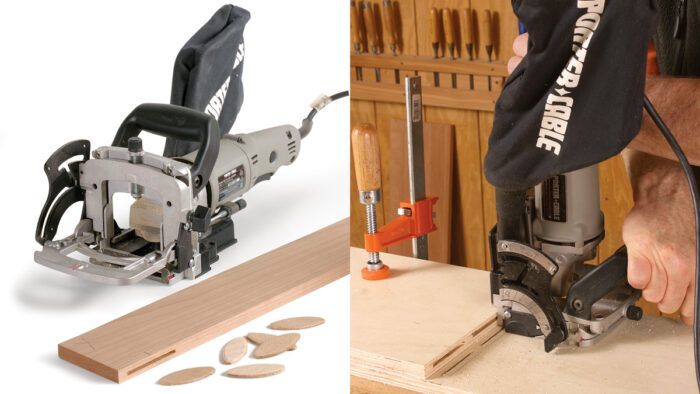
Synopsis: Biscuit joints can be used on all wood products and on combinations of different products in one piece. For example, they are a great way to join a plywood carcase and attach an assembled face frame. They also help keep things aligned when gluing solid-wood edging to plywood or assembling solid boards into a wide panel. Tom Begal lays out the basics of biscuit joinery for beginners.
It will never match the beauty of a dovetail or the strength of a mortise-and-tenon, but for speed, accuracy, and ease of use, it’s hard to beat the biscuit joint.
Biscuit joints can be used on all wood products: solid wood, plywood, medium-density fiberboard (MDF), and particleboard. For this reason, they are great for cabinetry, which typically involves a mix of solid wood and sheet goods. Biscuits are a great way to join a plywood carcase and attach an assembled face frame. They also help keep things aligned when gluing solid wood edging to plywood or assembling solid boards into a wide panel.
Biscuit joiner cuts the slots
A dedicated tool and an oddly shaped tenon combine to create a biscuit joint. at the heart of the process is a power tool called a biscuit joiner or a plate joiner. To make a joint, use the tool to cut a shallow slot in each of the mating parts. Then, after adding glue to each slot, insert a thin, football-shaped biscuit into one slot. a little more than half the biscuit’s width goes into the slot; the other half sticks out. To complete the joint, just slip the mating slot onto the “tenon” and clamp the parts together.
The biscuit joiner has just four main parts: a motor, a blade that cuts the slot, an adjustable fence that aligns some types of cut, and a base that houses the blade and also can align cuts.
The 4-in.-dia. blade looks like a miniature tablesaw blade. unlike a tablesaw blade, however, the biscuit joiner blade cuts horizontally. The kerf it creates, commonly called the slot, measures about 1⁄8 in., just wide enough to accept standard-thickness biscuits.
Thanks to a spring-loaded sliding “way” that connects the base and motor, you can butt the front of the base against a workpiece, start the motor, and push it forward. The spinning blade emerges from the front of the tool to cut a shallow arc-shaped slot in the workpiece. Release the forward pressure, and the springs push the motor back to retract the spinning blade safely into the base.
Expanding biscuits fill the slots
The second element in this joint is the biscuit. Made from beechwood or white birch that has been thoroughly dried, biscuits are compressed by machine to a standard thickness. For maximum all-around strength, the biscuits are cut so the grain runs diagonally.
When a biscuit comes into contact with moisture, it swells. So when you insert a biscuit into a glue-lined slot, the biscuit expands, creating a snug fit and a tight joint. It is important to use only water-based glues such as common yellow PVA glue. Biscuits won’t work with epoxy, cyanoacrylate (“super”) glue, or polyurethane glues.
Use the fence or the base to locate the slot
When using a biscuit joiner, you have two ways—the fence or the base—to register the slot in the workpiece. Each has advantages.
For extra flexibility, the adjustable fence lets you position the slot anywhere between 3⁄16 in. and 1 in. from the fence (if the biscuit is any closer than 3⁄16 in. to the surface of the workpiece, its swelling could create a bulge on the surface). Also, you can set the fence to cut slots in angled joints.
Biscuits come in three standard sizes, No. 0, No. 10, and No. 20. The biscuit joiner has preset depth stops that match these sizes.
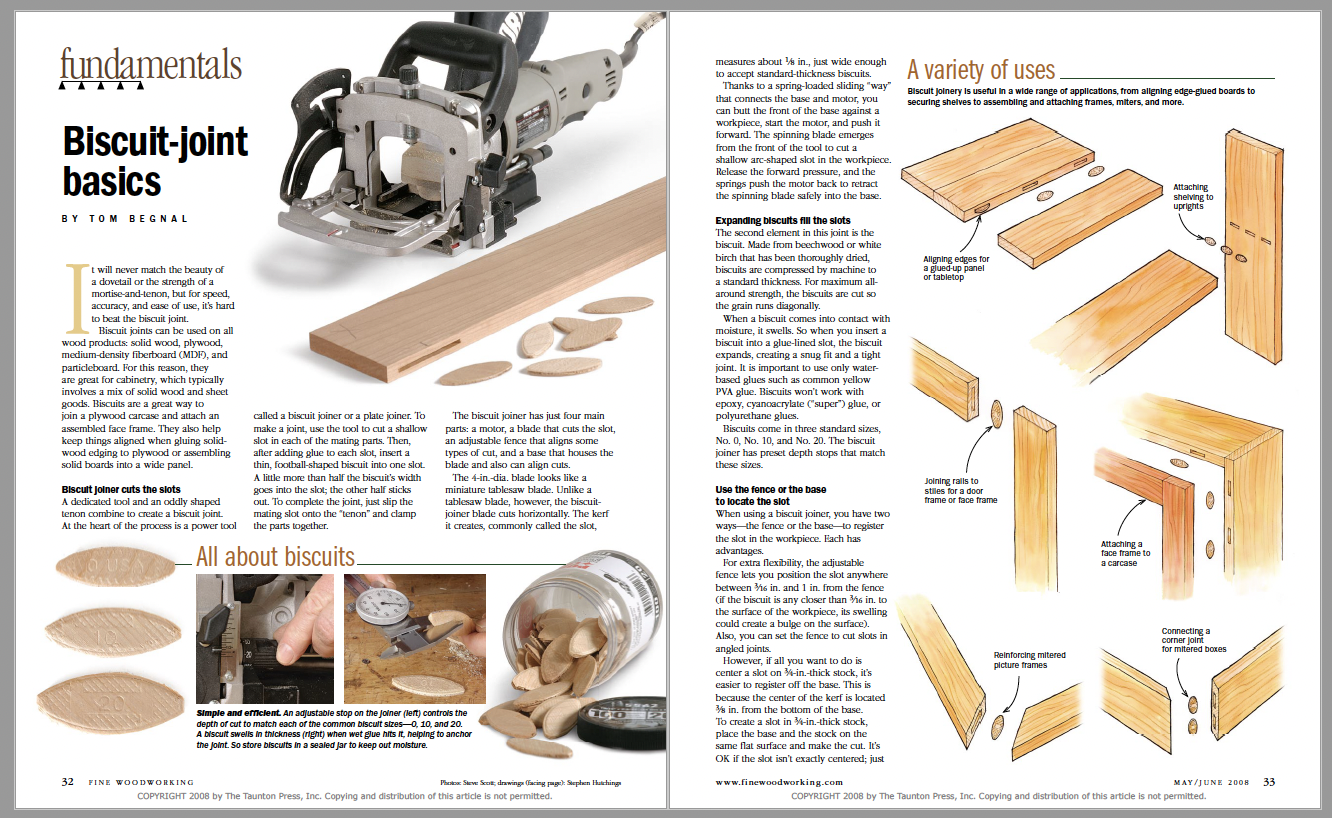 From Fine Woodworking #198
From Fine Woodworking #198
For the full article, download the PDF below:
Fine Woodworking Recommended Products
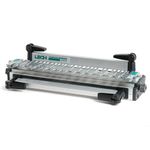
Leigh Super 18 Jig
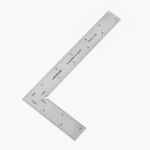
Veritas Precision Square
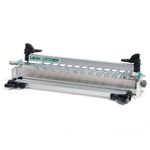
Leigh D4R Pro
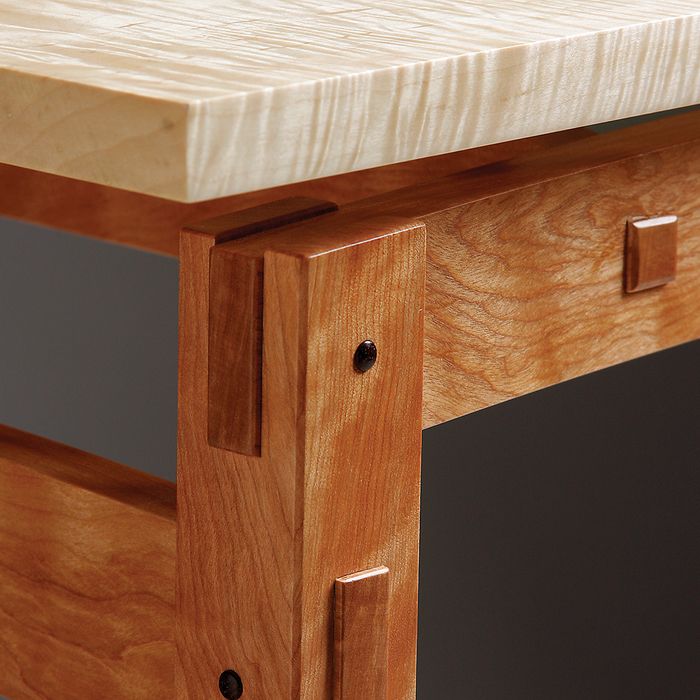

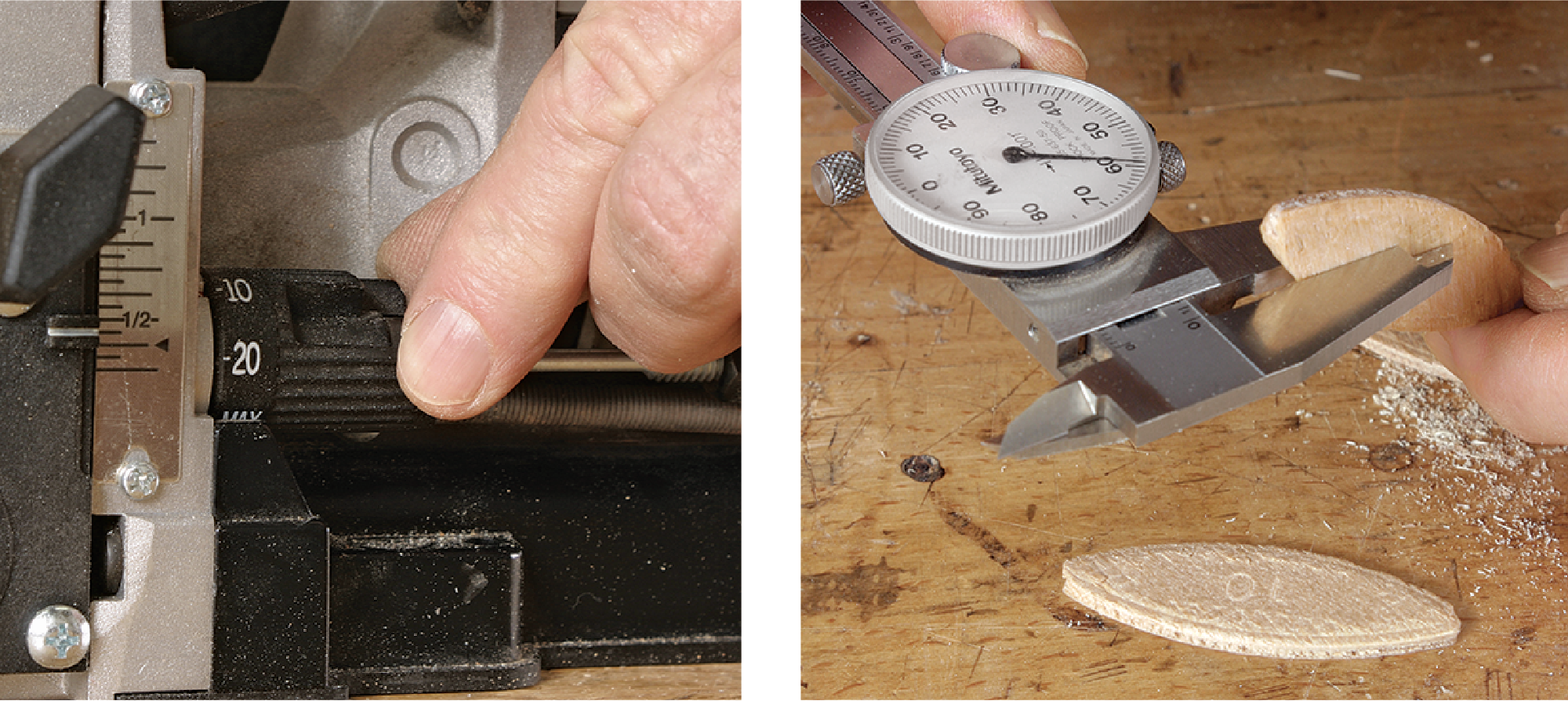
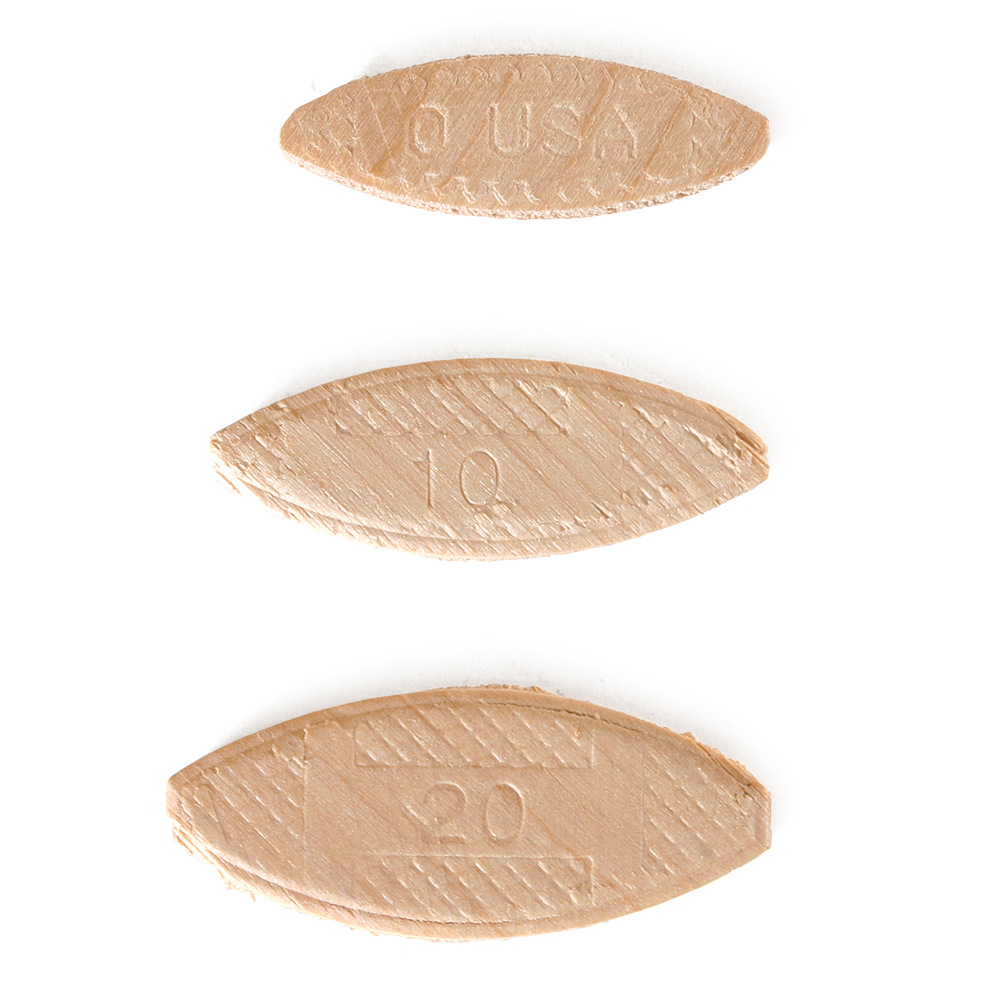
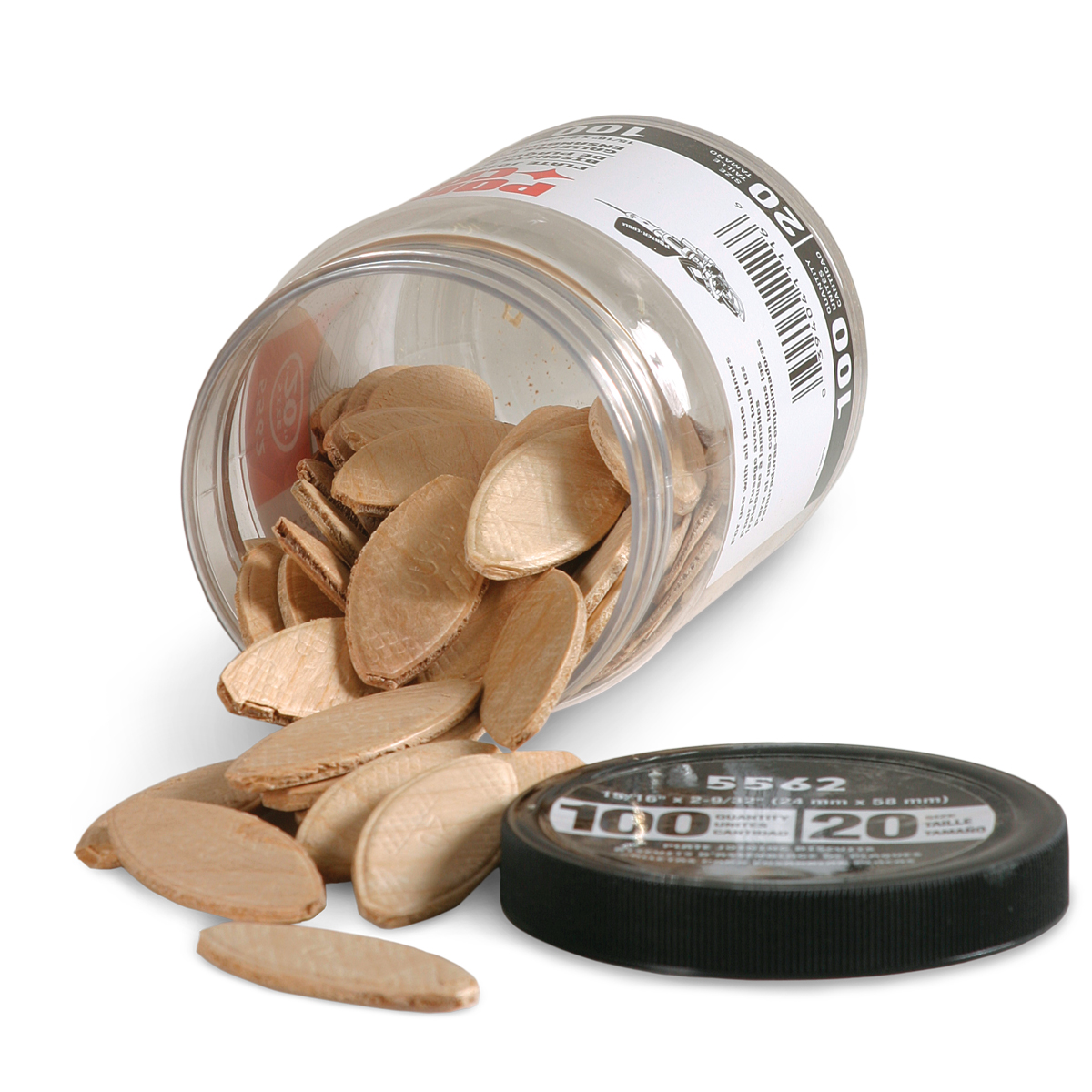






Log in or create an account to post a comment.
Sign up Log in